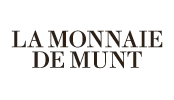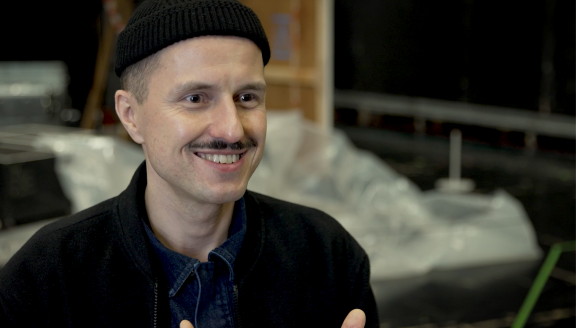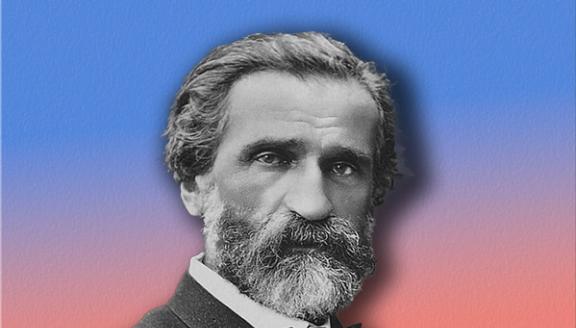PART 1. Late 1960s. Growing social tensions are spreading across Europe. Three young men, Carlo, Lorenzo and Giuseppe, find themselves involved in a protest movement. All three gravitate towards Laura, a committed activist who is studying violin. As the revolution gradually turns into a physical confrontation with the authorities, personal and emotional conflicts break out between members of the group and Laura's ideal of peaceful resistance is overtaken by reality. How far will she go for her beliefs?
La Monnaie’s ambitious, two-part production brings together musical highlights from the sixteen first operas of Giuseppe Verdi to tell a new story. We meet three friends during two key years of their lives: the protest years after May 1968 and a reunion forty years later. Separated by time but linked by their shared past, these friends take stock of what remains of the unrest, violence and idealism of their youthful years, and try to uncover the truth behind an unsolved mystery. The project unfolds over the course of two separate opera performances, Rivoluzione and Nostalgia. With compelling arias, emblematic overtures and such memorable choral parts as ‘Va, pensiero’ from Nabucco, these performances will take us to the heart of Verdi’s musical genius.
CAST
|
Carlo
|
Enea Scala
|
|---|---|
|
Giuseppe
|
Vittorio Prato
|
|
Lorenzo
|
Justin Hopkins
|
|
Laura
|
Nino Machaidze
|
|
Cristina
|
Gabriela Legun
|
|
Arminio
|
Hwanjoo Chung
|
|
Orchestra
|
La Monnaie Symphony Orchestra
|
|
Chorus
|
La Monnaie Chorus
La Monnaie Choral Academy
|
| ... | |
|
Music
|
Giuseppe Verdi
|
|---|---|
|
Conductor
|
Carlo Goldstein
|
|
Script, direction, sets & video
|
Krystian Lada
|
|
Costumes
|
Adrian Stapf
|
|
Light
|
Aleksandr Prowaliński
|
|
Choreographer
|
Michiel Vandevelde
|
|
Set collaborator
|
Łukasz Misztal
|
|
Video collaborator
|
Jérémy Adonis
|
|
Chorus master
|
Emmanuel Trenque
|
| ... | |
VIDEOS
Story
Act I - The university
For the final-year project in her film studies course, Cristina is making a documentary about the students’ and workers’ protest of the time. She films the street demonstrations herself and interviews a number of people, asking each of them the same question: ‘What will be left of you after your time?’ The first to answer is none other than her boyfriend, Giuseppe.
Students occupy a lecture hall at the university in protest against the wars raging on various continents, particularly in Vietnam and Algeria. Lorenzo, who is highly committed to the cause, criticises the hypocrisy of the government and the police repression. He urges violent action, but is criticised by his girlfriend Laura, also a student at the conservatoire. The young woman tempers the fervour of the activists and calls for non-violent protest. She is pleased that the shipyard workers have joined the protest movement, thanks to the intervention of the young and charismatic Carlo. Students and workers are now united in the struggle. Lorenzo is envious of Carlo’s influence: could this commanding figure steal Laura’s heart? In an attempt to head Carlo off, Lorenzo tries to persuade Laura’s brother Giuseppe to allow him to marry her. However, Giuseppe refuses to get involved in his sister’s love life. Finding themselves alone, Lorenzo and Laura quarrel. When Laura admits that she has had an affair with Carlo, Lorenzo’s jealousy is further inflamed.
While on work placement at the shipyard, Giuseppe meets Carlo. The two young men become friends, buoyed by their shared passion for boxing. They vow to fight side by side. The shipyard workers join them and all toast their imminent victory. The jollity is interrupted by the brutal intervention of the police at the occupied university. Numerous students are arrested, and so is Carlo. General confusion descends.
Act II - The street
Giuseppe tells Cristina that he cannot find Carlo. He heard shouting and rifle shots during the commotion and so thinks that Carlo was shot by the police. Cristina is badly shaken by this news, which surprises Giuseppe. He had no idea that Carlo and Cristina knew each other well; he, too, is racked by jealousy.
Laura still has no news of Carlo and even though her father is the Chief of Police, no information is forthcoming. She cannot put out of her mind the traces of blood she saw on the street. Was it Carlo’s blood? While her father celebrates with leading politicians, Laura blames society and mourns the probable death of the man she loves. Her lamentation is interrupted by a student who comes to say that Carlo is alive. The young woman is ecstatic and Lorenzo, who observed the scene from a distance, is consumed by jealousy.
The good news about Carlo spreads quickly among the demonstrators and they express their delight by breaking into song. Shortly afterwards, Carlo joins them, trying to conceal the fact that, in exchange for his freedom, he made a pact with the Chief of Police, Laura and Giuseppe’s father. He was promised a helping hand in his career if he broke off his affair with Laura. He agreed to the deal. Giuseppe welcomes his friend but discretely reveals his double agenda: he would have preferred to see Carlo dead, thereby removing the threat to his relationship with Cristina.
Laura notices that Carlo has become much more distant since his arrest. She decides to turn the page and focus entirely on the revolution, even if in so doing she risks being disloyal to her father. She is now convinced that only violent action can change anything. That belief has been strengthened by visions in which well-known revolutionaries from the past invite her to join them and become the leader of the movement. Laura accepts her fate during a prophetic dream, and nobody seems able to deter her from fulfilling this new mission.
Act III - The barricade
Giuseppe has decided to go and work for the police and now appears in uniform. He feels that his relationship with Cristina is hanging by a thread. Once again he declares his love, but she rejects him. Just as Giuseppe is about to use violence against her, Carlo appears. A fierce argument breaks out between the two men. When the demonstrators learn that Carlo has made a pact with the police, they make an end to the argument and curse their former leader.
Laura sets out her radical political views in a manifesto: only urban guerrilla action can destroy the apparatus of state control. Carlo, who is more moderate in his political thinking, no longer recognizes Laura. Now that she is prepared to commit acts of terrorism, he feels betrayed by her.
The demonstrators on a barricade, who include Cristina and Lorenzo, cannot believe their eyes when they see Giuseppe on the side of the police. Laura constructs an explosive device and hides it in her violin case. With the other protestors at her side, who see her as a role model, she prepares to carry out her mission. Suddenly a huge explosion destroys the barricade.
Laura’s spirit now rests with well-known revolutionaries from the past.





